- Register
- Log in to Tune-In
- Wishlist (0)
-
Shopping cart
(0)
You have no items in your shopping cart.
Beatles News
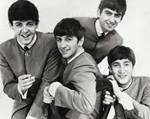
Some of The Beatles‘ songs that became huge hits are mostly forgotten today. On the other hand, some of The Beatles’ songs that remained album tracks are as popular as ever. Notably, a very famous Beatles album track has its own music video.
5. ‘A Day in the Life’
“A Day in the Life” is one of The Beatles’ most acclaimed songs and one of the most important songs in the history of psychedelia. It even had a star-studded music video featuring appearances from Mick Jagger and Mike Nesmith. Despite this, the song was never actually a single.
Fans can find a lot in the song by reading between the lines. Much of the song’s lyrics revolve around mundane things like going to the movies or combing one’s hair. The music turns horribly sinister at several points in the track. Perhaps the song is about how so many horrible things lie behind banality.
Source: Matthew Trzcinski/cheatsheet.com
details
The Beatles broke up in 1970 after releasing their 13th and final album, Let It Be. The band had been having a lot of problems in the years that preceded, with incessant arguing and even lawsuits filed against one another. But John Lennon knew the heartbreaking split was coming years before it actually happened.
Lennon felt the band's days were numbered from August 27, 1967, when Brian Epstein died.
Epstein was the band's manager, and the man who discovered The Beatles down a dusty alleyway in Liverpool, UK. He pushed them to change their look, replaced their drummer with Ringo Starr, and got them their first number-one singles. He was extremely close with every member of the band - particularly Lennon - so when he died in 1967 the Fab Four were devastated.
Epstein was found dead at his home aged 32. He suffered a combined alcohol and barbiturate overdose. The death was ruled accidental.
Lennon spoke candidly about learning of Epstein's death, and what he felt it meant for the band.
Source: Callum Crumlish/express.co.uk
details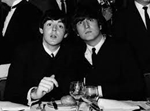
Paul McCartney and John Lennon met as teenagers and went on to have one of the most prolific — and fraught — relationships in music history. The two musicians wrote countless classic songs together, but they also had a complicated dynamic. They were highly competitive and fought publicly after The Beatles broke up. While McCartney now reflects fondly on their relationship, he once said they didn’t fully know each other.
McCartney met Lennon at a church festival in 1956. Lennon’s band, The Quarrymen, was playing, and McCartney immediately noted Lennon’s skill.
“They weren’t bad,” he said, per the book The Beatles: The Authorized Biography by Hunter Davies. “John played the lead guitar. But he played it like a banjo, with banjo chords, as that was all he knew. None of the others had even as much an idea as John how to play.”
Source: Emma McKee/cheatsheet.com
details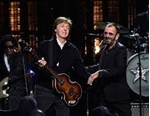
“Hey Jude” is one of The Beatles’ greatest songs, yet the track has plenty of secrets attached to it. It sounds like a perfectly recorded track, but there were a few hiccups, including a curse word that was left in the song. Paul McCartney revealed that Ringo Starr wasn’t there at the beginning of the first recording session as he had “slipped out” to use the bathroom.
The Beatles typically released shorter hits that ranged from two to four minutes. However, they exceeded expectations with “Hey Jude,” a song over seven minutes. For a while, the track was the longest song to reach No. 1 on the U.S. Billboard Hot 100. In the 2015 book Conversations with McCartney, Paul shared that he and John Lennon were inspired to create an extended song after listening to Bob Dylan.
“We were cross-pollinating each other,” Paul recalled. “He’d bring out a long record, so we knew it’d be OK to do ‘Hey Jude’ long. ‘What d’you mean, man? ‘Like a Rolling Stone’ is six minutes 30 [seconds]. Why can’t we have one seven minutes?’ You started breaking boundaries, questioning previous values.”
Source details
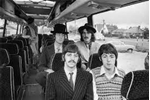
George Harrison wasn’t exactly sure if he felt like a Beatle in 1967, but he was “willing to go along with it.” Throughout his time with the group, George never felt like “Beatle George.” That was just a suit he sometimes put on, although reluctantly at the end.
During an interview on the BBC Radio program “Scene And Heard” (per Beatles Interviews), a reporter asked George how he felt about being out on the road again as “The Beatles” during the making of Magical Mystery Tour.
George didn’t know. He added that he’d never really known what it’d been like as The Beatles. As far as he was concerned, The Beatles was still something abstract. “It’s something that other people see us as The Beatles, and I try to see us as The Beatles but I can’t,” he said.
Soure: Hannah Wigandt/cheatsheet.com
details
Many guitar nerds note that perhaps the most important detail of replicating the Beatles’ tones after their guitars and amps is the type of strings that they used. It is generally believed that Harrison and Lennon used flatwound electric guitar strings in the early years up until late 1965, just after the release of Rubber Soul. After that, from Revolver and beyond, they apparently switched to roundwound strings.
This argument seems to make sense from both sonic and historical perspectives. The more balanced and less brilliant tone of flatwounds certainly explains why some critical listeners today are under the mistaken impression that George didn’t play an electric 12-string on Ticket to Ride (George Martin’s handwritten notes indicate that Harrison did indeed use his Rickenbacker 360/12) since most guitarists today are used to the sound of electric 12-strings with roundwounds.
Source: Chris Gill/guitarworld.com
details
Paul McCartney has paid tribute to the late songwriter Burt Bacharach.
Bacharach, the man behind huge hits such as ‘I Say A Little Prayer’ and ‘Raindrops Keep Falling On My Head’, died on Wednesday (February 8) at the age of 94. He passed away at his home in Los Angeles from natural causes, a spokesperson told the Washington Post.
Now, the former Beatle has become the latest figure from the entertainment world to pay tribute to Bacharach in an emotional thread on Twitter.
“Dear Burt Bacharach has passed away,” McCartney began. “His songs were an inspiration to people like me. I met him on a couple of occasions and he was a very kind and talented man who will be missed by us all. His songs were distinctive and different from many others in the ’60s and ’70s…”
He continued: “When we met not too long ago he reminded me that he had been the musical director for Marlene Dietrich when The Beatles shared the bill with her at the London Palladium. He was a lovely man. Nancy and I send lots of love to his family. Paul.”
Dear Burt Bacharach has passed away. His songs were an inspiration to people like me. I met him on a details

The way The Beatles broke up seemed to make a reunion impossible. John Lennon once said he and Paul McCartney were so good they could have been The Beatles without George Harrison and Ringo Starr. That seems doubtful even though Paul and John wrote most of the songs. Still, John and Paul’s tattered relationship as the Fab Four fractured made regrouping next to impossible. Paul signed a contract that proved he believed a Beatles reunion might happen, but the closest they ever came to getting back together was a Ringo solo album.John said he first saw the end of The Beatles coming when manager Brian Epstein died. The Fab Four held on for more than two years after Epstein’s August 1967 death, but it wasn’t easy. Ringo walked out of the White Album sessions. George did the same while working on Get Back.
Source: Jason Rossi/cheatsheet.com
details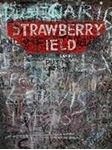
It was 56 years ago Sunday (February 13th, 1967) that the Beatles released their double A-sided single of "Strawberry Fields Forever" and "Penny Lane." The single contained two of the first three songs recorded for the group's upcoming Sgt. Pepper's Lonely Hearts Club Band album. (The other song, "When I'm 64," was saved for the album.) The songs broke the group's then unprecedented six-month stretch since their last single, "Yellow Submarine" backed by "Eleanor Rigby."
The new songs, which touched upon the group's Liverpool upbringing, were a study in contrasts, with Paul McCartney's more literal "Penny Lane" borrowing heavily from the sound of the Beach Boys' then-recent Pet Sounds album, and John Lennon's introspective "Strawberry Fields Forever" breaking new ground in both record production and song structure.
Source: Music News/mixjamestown.com
details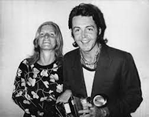
Paul McCartney had some simple and obvious inspiration for his 1971 song “Eat at Home.” However, he also had some not-so-simple and not-so-obvious inspiration. When he meshed it all together, it worked.
Shortly after The Beatles split, Paul retreated to his High Park Farm in Kintyre, Scotland, with his wife Linda and their kids. One day, Paul and Linda sat down to eat a meaty dinner and casually looked outside their window. There, they saw their lambs happily galloping away in the fields.
Suddenly, their roast dinner wasn’t appetizing. It was an awkward moment that ultimately turned them into vegetarians. Eventually, Linda started coming up with great meatless dishes and later wrote her own cookbook.
In The Lyrics: 1956 to the Present, Paul wrote that nobody was writing simple and easy-to-follow recipe books for meat-free home cooking. He added that he and his wife liked eating in bed. Living in comfortable domesticity, Paul wrote “Eat at Home.”
Source: Hannah Wigandt/cheatsheet.com
details
Paul McCartney and John Lennon‘s songwriting sessions were short. You’d think that they took their time pouring over lyrics or extracting The Beatles‘ early hits from their brains was hard work. However, their songwriting sessions only lasted about three hours. After that, they couldn’t think anymore.
In The Lyrics: 1956 to the Present, Paul wrote that he and John used to go to each other’s houses for songwriting sessions, which only lasted about three hours.
Paul wrote that it wasn’t that they set a strict time limit; “it was just that by three hours, we’d had enough, and we learnt that by then we could polish it off. That two to three hours is a kind of natural period. It’s why most classes or seminars and most recording sessions are two to three hours. After that your brain goes a bit.”
It’s also worth pointing out that The Beatles’ early songs were simple; they used the same chords. Although, one of their most simple songs, “Good Day Sunshine,” puzzled classical composers. It’s interesting because they didn’t know how to read or write music.
Source: Hannah Wigandt/cheatsheet.com
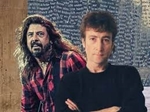
Dave Grohl has publicly expressed his love for The Beatles and the influence the band had on his career. He has worked with Paul McCartney a few times but never had the chance to interact with John Lennon. In a recent interview, Dave Grohl shared his admiration for John Lennon and revealed the song Lennon wrote that he is envious of.
Many artists know their favorite song by The Beatles, but for many, it’s hard to choose since the band released so many hits. Even with individual albums, it can be difficult to decide which track from the album is the best. In a 2019 BBC Radio 2 interview (shared by Far Out), Grohl was asked what his favorite Abbey Road song is, and he said, “I Want You (She’s So Heavy)”.
“The one that stands out to me the most, and has always been my favorite from that record, is called ‘I Want You (She’s So Heavy)’,” he shared. “I love heavy music, I love Black Sabbath, I love Motörhead, but I think that nothing is heavier, melodically darker, and deeper than the riff in this song.”
Source: Ross Tanenbaum/cheatsheet.com
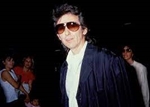
George Harrison said people wouldn’t want to see “three old men hobbling around the stage pretending to be the Fab Four.” He was sick of people asking him if The Beatles would ever reunite.
The spiritual Beatle always appreciated the fans, but he didn’t understand why some of them never let go of The Beatles. He had a problem with the people who wanted the band to continue or reunite. During a 1974 press conference (per George Harrison on George Harrison: Interviews and Encounters), George said he realized The Beatles filled a space in the 1960s and that the group meant a lot to people.
However, he also knew that some people were too attached. “I can understand that the Beatles did nice things and it’s appreciated that people still like them,” George said. “The problem comes when they want to live in the past, when they want to hold on to something. People are afraid of change.”
Source: Hannah Wigandt/cheatsheet.com
details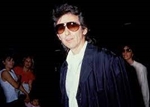
George Harrison steered clear of approaching other famous people. He knew what it felt like when people confronted him. If George craved invisibity he rationalized that other celebrities did too.
After experiencing Beatlemania for about 10 years, George’s nerves were shot. He said he and the band came out of the 1960s “shell-shocked. They were lucky to have their sanity and humor intact.
For much of the 1960s and 1970s, George and The Beatles couldn’t go anywhere without being mobbed by people. “A good romp? That was fair in the films,” he wrote in his 1980 memoir, I Me Mine, “but in the real world . . . we didn’t have any space . . . like monkeys in a zoo.”
Eventually, George didn’t know whether his life was a blessing or a curse. During a 1975 interview with Dave Herman at WNEW-FM (per George Harrison on George Harrison: Interviews and Encounters), George said the blessing is that you’re rich and famous and “all this looks rosy.” On the other hand, the curse is that you’re never left alone and have to deal with people’s expectations.
George never escaped the watchful eye of the public and the hounding press. The details
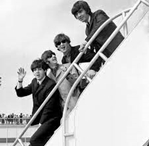
George Martin hated The Beatles’ “One After 909” and early John Lennon-Paul McCartney songs. He discussed why he had a positive view of the band in their early days anyways. The Beatles rediscovered “One After 909” sometime after and put the song on a classic album.
Producer George Martin hated The Beatles‘ “One After 909.” John Lennon revealed he wrote it when he was a teenager. Subsequently, The Beatles rediscovered the song when they were putting Let It Be together.
During a 2004 interview with Analog Planet, Martin discussed meeting The Beatles. “When I first met them in ’62, their material was terrible,” he said.
“Their songs were … I mean, ‘One after 909?'” he said. “What the hell was that? It was silly stuff. Not very good, really. But they had this potential, and they had this charisma.”
Source: Matthew Trzcinski/cheatsheet.com
details